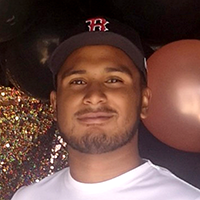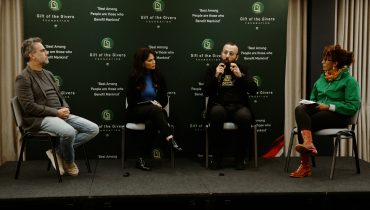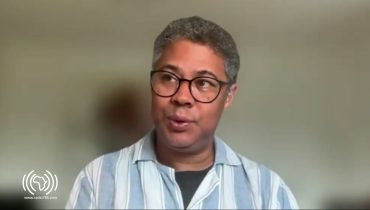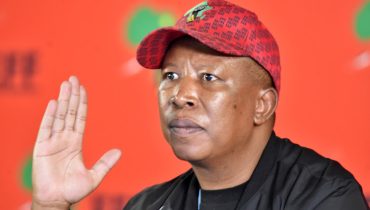Mogammad Davids writes
The 1st November 2021. The commencement of South Africa’s 6th municipal elections since the demise of the Apartheid regime. A period marked by rigorous political campaigning and citizens ‘heading to the polls’, electing potential leaders of the nation.
When attaining power through South Africa’s first democratically-held elections in 1994, the African National Congress had been made profoundly aware of the vast array of economic, social, and political inequality amongst South Africa’s population. Apartheid encouraged discrimination, within every facet of life, towards the majority non-white population – referring to all individuals belonging to the Indian, Coloured and Black racial groups – causing detrimental effects for these racial groups, especially within the economic and political arenas.
The regime hindered individuals from obtaining equal work opportunities and potentially owning businesses, ventures, companies, and establishments, regardless of whether these groups represented the majority of the population.
White-collar jobs and options were all reserved for the white minority.
Challenges posts 1994
As such, the democratically-elected ANC government had a distinct, politically-acquired ruling in which to follow, which looked at correcting the generational damage caused by South Africa’s troubled past. For a country riddled with injustices caused not only by Apartheid but British colonial rule as well, elections mean more.
Due to South Africa being categorically seen as a democracy, our government is required to uphold specific criteria of an array of radical dimensions, viewed as a framework to regulate the efficiency of the democracy we as citizens are governed by. Dahl (1998) suggests that democracy provides constant citizen engagement over the agenda, equality in voting and citizen involvement in everyday tasks (Dahl, 1998:38).
Due to South Africa being categorically seen as a democracy, our government is required to uphold specific criteria of an array of radical dimensions, viewed as a framework to regulate the efficiency of the democracy we as citizens are governed by. Dahl (1998) suggests that democracy provides constant citizen engagement over the agenda, equality in voting and citizen involvement in everyday tasks (Dahl, 1998:38).
Voter participation
Unlike many who have followed the system of a ‘legal democracy’, South Africa has adopted the framework of a Participatory democracy. Essentially, allowing citizens to participate in the manner in which they are governed creates a sense of empowerment, which “reduces poverty and enhances equity among all group” (Blair cited in Gaventa, 2004: 32), with the interests of citizens being held in high regard, as they are seen as cornerstones within any given state or nation across the world.
With the world currently labouring a fatal pandemic, many nation leaders and governments implemented lockdown regulations, hoping that it would reduce the rate of infection and the high volume of fatalities. The ruling African National Congress is seen as stalwarts and having a considerable influence on the demise of the Apartheid regime. Viewed as being at the forefront of the fight for liberation, many of South Africa’s citizens have trusted them, from election to election, to govern the nation and its people.
With the world currently labouring a fatal pandemic, many nation leaders and governments implemented lockdown regulations, hoping that it would reduce the rate of infection and the high volume of fatalities. The ruling African National Congress is seen as stalwarts and having a considerable influence on the demise of the Apartheid regime. Viewed as being at the forefront of the fight for liberation, many of South Africa’s citizens have trusted them, from election to election, to govern the nation and its people.
Skepticism of change
However, as of late, the party has come under severe scrutiny and is in a critical stage of its history. Under lockdown, many of the nation’s citizens have felt discouraged by certain decisions that have been sanctioned by government officials, with the number of accusations and allegations directed at these ‘elected officials’ having rapidly risen since the beginning of the pandemic.
With more than 50% of the population in abject to extreme poverty and an estimated figure of 63.0 in Gini Coefficient rating, South Africa ranks as one of the most unequal countries in the world.
However, as of late, the party has come under severe scrutiny and is in a critical stage of its history. Under lockdown, many of the nation’s citizens have felt discouraged by certain decisions that have been sanctioned by government officials, with the number of accusations and allegations directed at these ‘elected officials’ having rapidly risen since the beginning of the pandemic.
With more than 50% of the population in abject to extreme poverty and an estimated figure of 63.0 in Gini Coefficient rating, South Africa ranks as one of the most unequal countries in the world.
Furthermore, according to the Quarterly Labour Force Survey (QLFS), the burden of youth unemployment is prevalent as ever, with the official rate of unemployment being 32.6% and 46,3% among young people aged 15-34 years, with this particular group accounting for 59.5 % of the total amount of unemployed individuals. As a result of these figures, some have felt unnerved and dejected, placing no faith in elected officials and the government by and large. These are just a few indicators that hinder the population and set doubt in the minds of potential voters within the Rainbow nation.
What informs young opinions?
The. ‘Local elections’ as it is dubbed. A period in which citizens are encouraged to cast their votes in electing councils for all municipalities, be it district, metropolitan or local, in each province within South Africa. As a ‘youth’ living in South Africa in the 21st century, one does not look very favourably at our
government heading into the upcoming elections.
government heading into the upcoming elections.
Although we are nearly three decades into a new democracy, racial tensions, gender-based hate crimes, lack of job opportunities, inadequate housing, severe levels of unemployment, corruption, and an ever-increasing inequality gap between the rich and poor are what citizens of the Rainbow nation are experiencing daily. Many have recently spread awareness concerning equality under these dire times. However, has it taken a pandemic and all its subsequent consequences for individuals to see that there is, in fact, a vast disparity between the rich and the poor of South Africa, which has been occurring for years? The pandemic has merely lifted the lid, revealing the actual severity of issues that plague the majority.
About the Author

Mogammad Davids is a graduate in English and Political Science at the University of the Western Cape and currently pursuing a B.A. Hons in Political Science,. He is a young, ambitious researcher focused on finding solutions to the many challenges ordinary South Africans face on a daily basis.
His interests are focused on race and class dynamics within contemporary South Africa, with special interest in the manner in which these phenomena are perpetuated within the economic, social as well as political realms of society.








